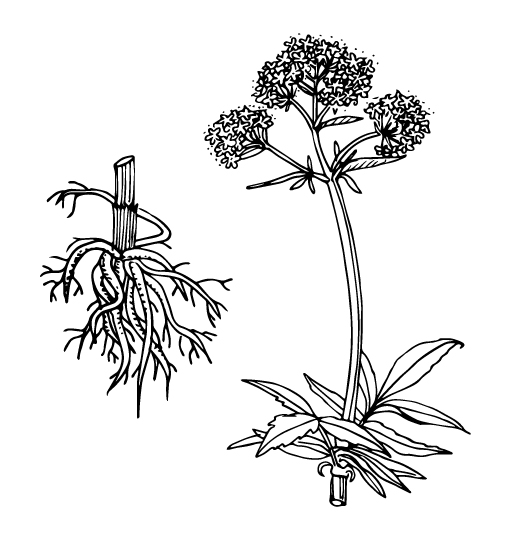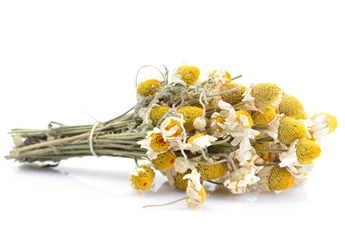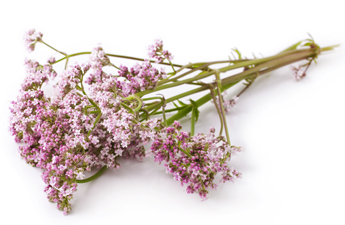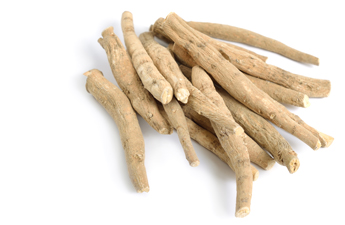Botanical name: Valeriana officinalis
Other names: Valerian root, garden valerian, garden heliotrope, all-heal
Valerian root is used as a nerve sedative and antispasmodic, as well as a remedy for hysteria and other nervous complaints. Used since ancient times, Valerian (its name derived from the Latin ‘valere’, meaning ‘to be in health’), has long been valued around the world. Valerian root comes from the perennial flowering Valerian plant, a hardy plant with sweet smelling pink or white flowers that blooms in summer.
The root, once processed and dehydrated, is used as a medicinal herb with sedative, anti-anxiety, and anti-insomnia effects in both tea and capsule form. Valerian has been used in this capacity since at least the Greek and Roman times and today is used not only because of these effects, but also as an anticonvulsant, migraine treatment, and pain reliever. It is native to Europe and some parts of Asia but is now cultivated in North America as well.
It acts as a muscle relaxant and mild tranquilliser, resulting in a feeling of ‘floating in the air’. It has potent sedating effects. While studies remain inconclusive about Valerian’s efficacy, extracts of the root appear to affect the GABA neurotransmitter receptor in mammalian nervous systems; this receptor system is the same system affected by sedative benzodiazepine drugs. Valerian can be used as a safer alternative to benzodiazepines, assisting with treatment of stress, tension, anxiety, and insomnia.
Valerian has also been used historically to treat gastrointestinal pain and irritable bowel syndrome (IBS). As an antispasmodic, it relaxes the smooth muscles of the gastro-intestinal tract, and it’s carminative action helps relieve flatulence and gas pain. It has been used to treat migraine headaches, perhaps due to it’s sedative and pain relieving properties. As an emmenagogue (stimulates menstrual flow) and antispasmodic, Valerian is an excellent choice for menstrual cramps & discomfort, as well as irritability caused by PMS. It is also very effective for relief from the pain of muscle spasms and sports injuries. Not surprisingly, Valerian also lowers blood pressure, and therefore benefits heart health.
Some reports of negative side effects of Valerian exist, stating that in some individuals Valerian can cause agitation and headaches, but one study indicated that Valerian appears to help sedate an agitated person and stimulate a fatigued person — essentially providing a balancing effect in the body.
Preparation: 1 tsp/cup, steep covered 20 mins, or 1/2 – 1 tsp tincture (more effective).
Reference: http://www.maplerowe.com/roots/valerian, Happy High Herbs seventh edition book, How can I use herbs in my daily life – Isabell Shipard 3rd edition

Valerian Root Common Uses
Valerian Root Actions
Valerian Root Recipes
Valerian Root Precautions
Can increase the effects of sedative or anti-anxiety medications such as opiates, benzodiazepines and barbituates – exercise caution and take under supervision of a professional. Avoid if you take haloperidol.
Can cause drowsiness and reduced reflexes – do not take if you need to drive or operate machinery. In 10% of the population, valerian causes the opposite effect: instead of sedation it causes agitation and restlessness.
Buy Valerian Root online from the Happy Herb Co
![]()
Australia’s biggest range
![]()
25 years of customer satisfaction
![]()
Fast International delivery
![]()
100% secure online ordering




 Nextwave
Nextwave

